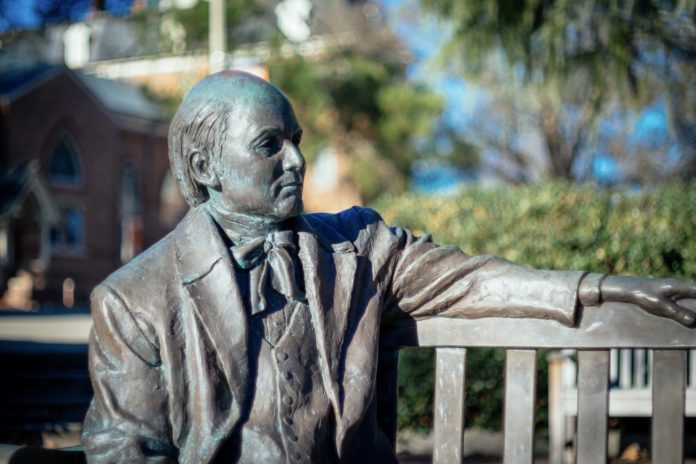SAVANNAH—Within minutes of the explosion at the Imperial Sugar refinery in Port Wentworth on Feb. 7, students from Mercer University School of Medicine began springing into action. Several students were on call Thursday evening and immediately received “mass casualty” pages from Memorial Health University Medical Center, where three dozen Mercer medical students are completing their clinical studies. Others saw footage of the disaster on television and headed to the Emergency Room to see if they could help.
“We were afraid we might just be in the way,” said Siri Raju, a fourth-year medical student from Richland who saw the news reports on television. “But we decided it would be better to risk it than to not be there if they needed help.” Raju need not have worried; she ended up in the ICU, where, among other things, she helped rub off burned skin, a process known as debridement, before washing and wrapping the burned areas.
Like Raju, Melissa Rosa, a third-year medical student from Bonaire, was at home when she heard the news. In the car on the way to the hospital, Rosa tried to imagine the scene waiting for her at the ER. “I wasn’t sure what to expect,” she said, “but I knew that times like these reminded me of exactly why I wanted to become a physician.”
The tragedy hit home for Rosa as she assessed the condition of a patient who had severe burns on sixty percent of his body. “We were the same age,” she said. “I helped get supplies to intubate the patient and assisted with manual respirations until a ventilator was available. It was a small role, but it freed the nurses to tend to other patients.”
Rosa also was impressed by the atmosphere in the ER. “I was amazed by how everyone—the attending physicians, resident physicians, nurses, techs, respiratory therapists, students, policemen, firemen—remained calm and so efficient while taking care of so many critical patients at once,” she said. “I was proud to be able to work beside them.”
Rosa was not the only student to note the activity of the hospital and emergency personnel. Thomas Riddell, a third-year student from Atlanta, described the situation in the ER as “tense, apprehensive, but well-prepared.” He said, “It was refreshing to see the various persons come together to help the burn victims. I saw nurses in their pajamas and doctors in their tuxedos…all working in unison for a common cause.”
In all, a dozen Mercer students responded to patient needs at Memorial Health, where they performed a multitude of tasks, from making trips to the blood bank, to calculating fluid requirements and debriding wounds. “I performed whatever task I could to help these patients receive the best treatment, whether it was helping transport patients, removing their clothes, calling the pharmacy for more medications, helping the nurses and respiratory therapists find equipment and supplies, or simply holding the patient’s hand,” said Reanne Parrenas, a fourth-year student from Dalton. “At times during the night I felt helpless and wished that I could do more.”
Mercer’s medical students prepare to enter a variety of fields. The students who arrived at the ER last Thursday had been studying everything from surgery and pediatrics to obstetrics and gynecology, but when it really mattered, preference for specialties were brushed aside.
“Our students immediately recognized the scope of this disaster and were quick to volunteer their time and abilities,” said Robert Hash, M.D., Senior Associate Dean of the School of Medicine, Savannah Campus. “Many of the faculty in Savannah have noted the dedication and contribution of our students, and how quickly they responded to this urgent need in the community. Although this was a tragic day for the victims and their families, I am very proud of the response from the Mercer students in Savannah.”
About Mercer University School of Medicine:
Celebrating its 25th year, Mercer University’s School of Medicine was established in 1982 to educate physicians and health professionals to meet the primary care and health care needs of rural and medically underserved areas of Georgia. The School only accepts Georgia residents into its medical degree program. Students entering Mercer University School of Medicine will be graduated from a school that utilizes a problem-based medical education program that provides early patient care experiences. Such an academic environment fosters the early development of clinical problem-solving and instills in each student an awareness of the place of the basic medical sciences in medical practice. In June 2007, the University announced it would expand its two-year clinical program at Memorial University Medical Center into a second full, four-year doctor of medicine program by fall 2008. The School also offers master’s degrees in public health, family therapy, family services and nurse anesthesia.
About Mercer University:
Founded in 1833, Mercer University is a dynamic and comprehensive center of undergraduate, graduate and professional education. The University has 7,300 students; 11 schools and colleges – liberal arts, law, pharmacy, medicine, business, engineering, education, theology, music, nursing and continuing and professional studies; major campuses in Macon and Atlanta; four regional academic centers across the state; a university press; two teaching hospitals — Memorial Health University Medical Center and the Medical Center of Central Georgia; educational partnerships with Warner Robins Air Logistics Center in Warner Robins and Piedmont Healthcare in Atlanta; an engineering research center in Warner Robins; a performing arts center in Macon; and a NCAA Division I athletic program. For more information, visit www.mercer.edu.
###










